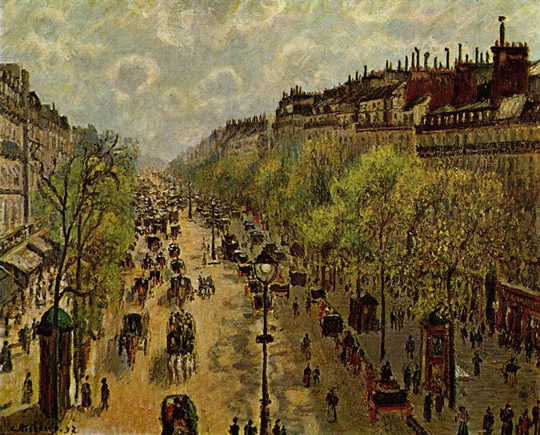The Springtime of the Soul Returns
One of the signs of this confusion is the spread of irrational concepts that are accepted without testing, as if minds have become dull. In this atmosphere these absurd ideas quickly become unquestionable and therefore difficult to correct. One example of such absurdities is the belief in the end of religion, that is, that God shall cease sending religions. Is it possible to imagine a sun that emits no light? How is it possible then to believe in a God Who does not assume His attributes?
The most essential attribute of God is His ancientness, attribute that implies unchangeability. He is exactly the way He has ever been since the beginning that has no beginning and will so remain until the end that has no end. The belief in an ancient God thus excludes any alteration in His nature or change in His attributes. He God has been the Source of all religions in the past and will remain so forever.
Thus ‘Abdu’l-Bahá continues His explanation of the spiritual cycle: “When darkness had overspread all horizons and the foundations of religion were destroyed, when religion had become a mere word and its ill practice caused trouble, when religions that had been the cause of unity and concord turned to hypocrisy and duplicity, God by His mere mercy sent a new shining star, and the Báb rose upon the horizon of Persia. Before long, Bahá’u’lláh’s light shone and His teachings were spread abroad announcing that the religion of God is light, holiness of character, and life to the world.”2
The Báb, Bahá’u’lláh’s Forerunner or Predecessor, appeared in 1844, and Bahá’u’lláh declared His mission in 1863. This is the same time period historians consider to be the beginning of the new world we are presently entering into. Historians determined this timeline by the emergence of the constituent principles that produced this distinctive fundamental change between two worlds.
Since that turning point, conditions of life on earth have been in motion, restless, becoming evermore distant from the world of our ancestors. Humanity has, since the mid 19th century until the end of the 20th century, passed through innumerable events which have produced unprecedented changes in the world and whose challenges, both spiritual and material, present generations and governments are still struggling to address.
Humankind had, in the past, witnessed limited change—change that produced small alterations in the pattern of life—unlike the present, in which the changes have altered all aspects of human life and promise to bring even more radical shifts in the future. The following examples may help to convey the enormous differences between these two worlds:
The present international order has already raised up institutions and institutional subsidiaries that have no parallel in the past, whether we look to the multiplication of its organizations or the expansion of its scope now covering matters hitherto considered to be exclusively national affairs, such as the protection of the rights of minorities and the protection of human rights: there are effective international organizations serving in the fields of finance, commerce and the economy, in the domains of health and food production, and in the protection of human rights, human development, the mitigation of ethnic and sectarian conflict, the separation of belligerents, and the maintenance of security; and in addition to these governmental organizations, there are numerous non-governmental organizations (NGOs), such as the Red Cross and the Red Crescent, the Olympic Committee, Doctors Without Borders, Amnesty International, Oxfam and so on. Another such international organization is UNESCO, which contributes to teacher training, literacy, freedom of expression, freedom of information, respect for the supremacy of the law and justice, and the protection of the principles of freedom.
Besides these changes to the international order, many new principles have had an impact on the national political systems of the world: the absolute power of governments has disappeared in favour of the people’s sovereignty; consultation between governments has become a more or less regular procedure; globalization in industry, commerce, economy and even in politics dominates the world scene; religious tolerance, anti-racism and the encouragement of both immigration and emigration are admitted everywhere.
